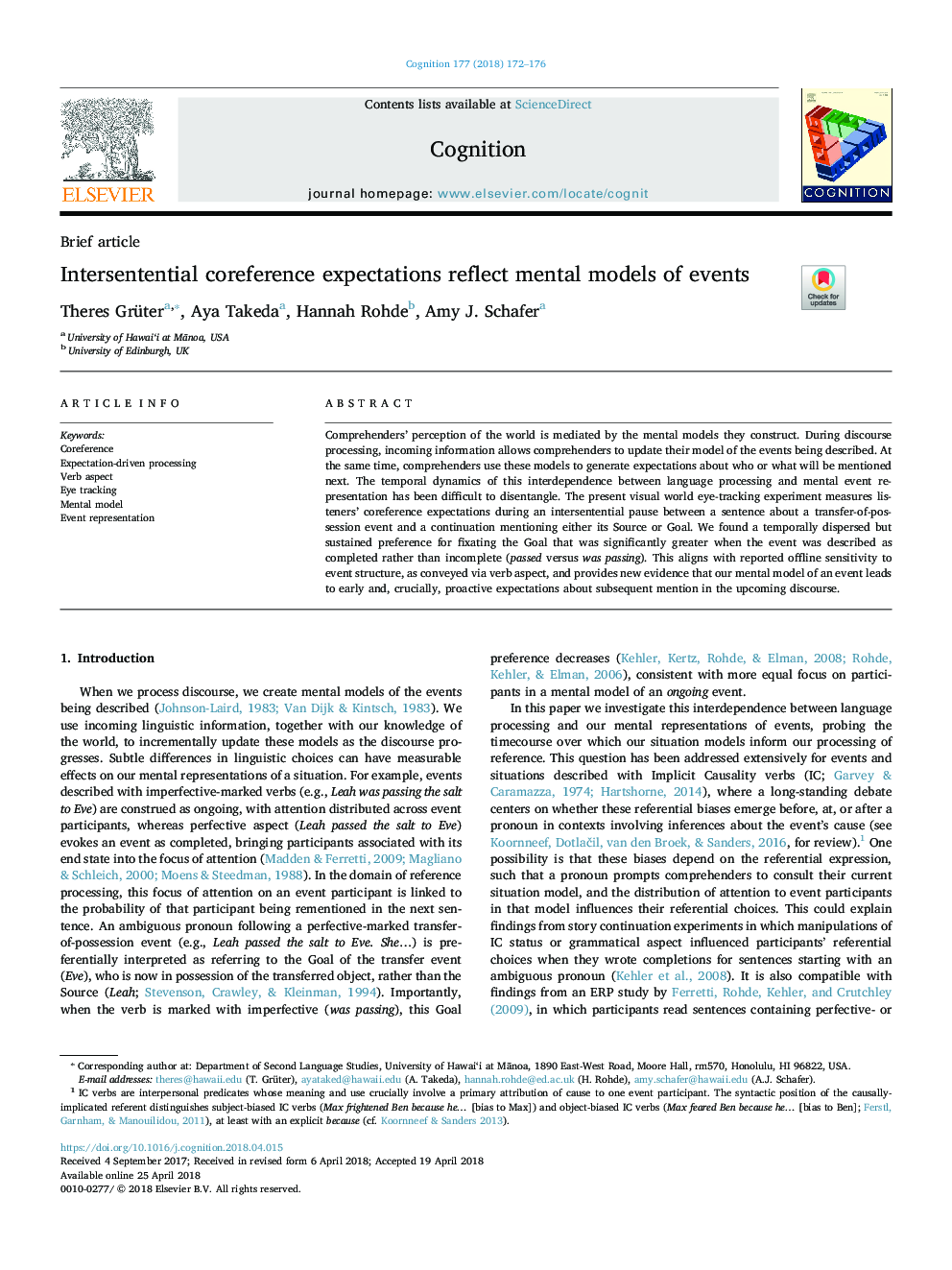| Article ID | Journal | Published Year | Pages | File Type |
|---|---|---|---|---|
| 7285359 | Cognition | 2018 | 5 Pages |
Abstract
Comprehenders' perception of the world is mediated by the mental models they construct. During discourse processing, incoming information allows comprehenders to update their model of the events being described. At the same time, comprehenders use these models to generate expectations about who or what will be mentioned next. The temporal dynamics of this interdependence between language processing and mental event representation has been difficult to disentangle. The present visual world eye-tracking experiment measures listeners' coreference expectations during an intersentential pause between a sentence about a transfer-of-possession event and a continuation mentioning either its Source or Goal. We found a temporally dispersed but sustained preference for fixating the Goal that was significantly greater when the event was described as completed rather than incomplete (passed versus was passing). This aligns with reported offline sensitivity to event structure, as conveyed via verb aspect, and provides new evidence that our mental model of an event leads to early and, crucially, proactive expectations about subsequent mention in the upcoming discourse.
Related Topics
Life Sciences
Neuroscience
Cognitive Neuroscience
Authors
Theres Grüter, Aya Takeda, Hannah Rohde, Amy J. Schafer,
